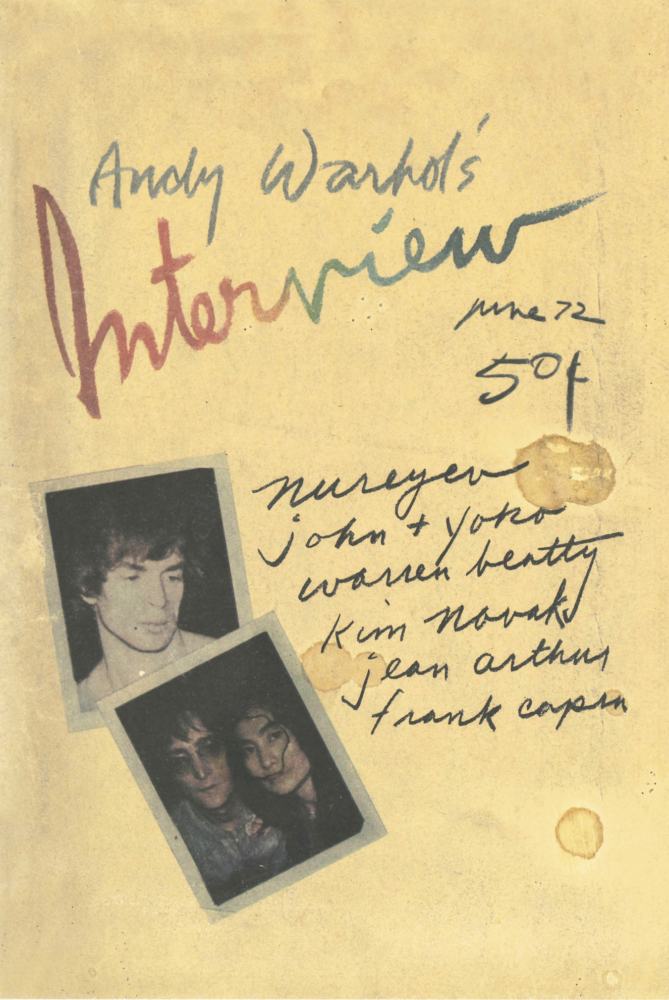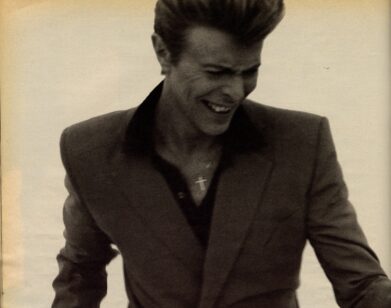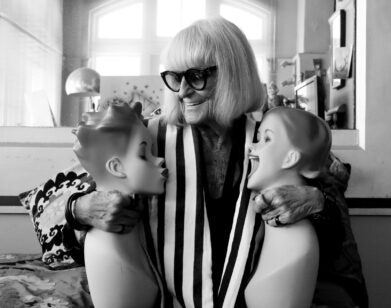That Time John and Yoko Were Offered a Free Vacation by the Chilean Government

That Time When is Interview’s weekly trip through the pop cultural space-time continuum, where we return to some of the most overlooked moments from issues past. In this edition, we revisit our 1972 cover story with John Lennon and Yoko Ono: the 20th century’s most button-pushing power couple.
The 1970s opened America’s eyes to change as it had never seen before. Losing faith in a government arbitrarily sending them off to war, the youth was poised with raised fists and ready voices, a generation drowning in confusion and repulsed by the status quo. John Lennon and Yoko Ono brought the voice of the people to the rock world. Shaking up society with poppy-yet-profound protest songs, John and Yoko released some of their most experimental records to date during the Vietnam era. Further assimilating controversy into their lifestyle—Lennon wrote a song to free the poet John Sinclair, who was arrested in Michigan on unconstitutional marijuana charges—the couple found themselves targeted by a cohort of regressive conservatives in search of celebrity scapegoats.
J. Edgar Hoover’s FBI opened a file on Lennon in 1971 and had him deported by ‘73. Likely referencing his 1968 pot bust in England, Lennon recounted, “The English are helping them [the FBI] saying, ‘We’ve got even worse stuff on ‘em.’ There ain’t nothing they can have. The only thing they can have is I was busted in England and we posed nude once.” During their time in America, John and Yoko refused to leave the country, fearing they’d be denied reentry. In our June 1972 cover story around the release of Some Time in New York City, John and Yoko’s fourth album together (on which “John Sinclair” appeared), they told Andy Warhol that they even denied an all-expenses paid Chilean vacation because “they’ll never let us back in”:
JOHN LENNON: Our feeling is to get settled here and just appear gradually and have them see that we’re alright, have them see us in all our forms.
ANDY WARHOL: Well, can’t you just leave the country and come back the next day?
YOKO ONO: No. They’ll never let us back in. That’s why we’re here now.
JOHN: We had an invite from the government of Chile and they were going to pay all expenses. We would have loved to go. And I wanted to go to Ireland and Cannes and China. I want to go everywhere but I don’t want to leave and not be able to come back.
Later, they elaborated on the rock star witch hunt:
YOKO: But at any rate what happened was my husband has a record and all that and they’re saying now, “Well Yoko doesn’t have a record but . . .”
ANDY: What kind of record?
JOHN: I was busted in England for pot.
YOKO: For possession of pot, he was planted, so was Mick Jagger, George Harrison, Keith Richards. The sergeant who arrested them has been suspended. The same sergeant arrested all of them, I think.
ANDY: It sounds so funny to say he has a record. He has a lot of records.
YOKO: It was a more serious scandal that the Sergeant who planted the stuff on you was suspended from his job this year for “suspicion of illegal method of arrest.” . . . they found out that he took bribes, though at the time he came around to our place, he didn’t ask for a bribe. . . in those days, he was still concentrating on getting a promotion. . . which he did right after he arrested John and the others.
JOHN: They’re saying our being here is a grave matter, and that they have a file on us containing unfavorable reports on our Peace effort. . . supposedly the English government is also helping ‘em to kick us out by saying, “We got more shit on ‘em on their peace thing.”
Lennon and the government surely held a mutual disdain for one another. But, as he told Warhol, the Nixon administration’s fear of him was entirely irrational. Speaking on the matter later in the interview, Lennon said, “They have this horrible vision of us coming to San Diego, with a whole pile of mad hippies and financing it. Now what can I do against Wall Street and the money they have. I’m not going to do what they think I’m going to do which is ‘finance the revolution.’ It’s crazy. Paranoic.” History has shown that Nixon was, in fact, growing exceedingly paranoid at the time—just ask Oliver Stone.
Lennon’s deportation was overturned and he was back in the US by 1976, where he remained until he was murdered outside his home at the Dakota on Central Park West in New York City. He and Yoko never took that trip to Chile, but it’s probably for the best. Despite their innocuousness, Lennon’s be-ins and give peace a chance rhetoric did pose a very real threat to the 1972 reelection of a war-mongering Nixon. Lennon didn’t adhere to expectations nor did he follow any sense of orthodoxy, but he did spawn a rebellion that paved the way for other artists to effect real political change. Society may be in a frightening moment, but if Lennon’s legacy is any indication, it’s safe to say we’ll all shine on.






